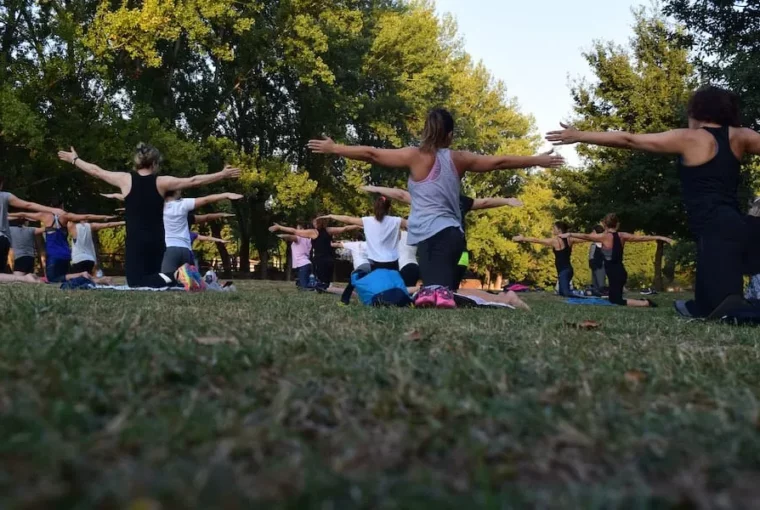Are you feeling overwhelmed, stressed, or anxious and need a helping hand to get your mental health back on track? One possible solution could be attending a retreat – specifically designed to assist in obtaining wellness within yourself. Retreats offer different modalities, activities, and teachings that allow participants to build resilience while improving their physical and emotional well-being. Whether you are looking for increased self-awareness or simply some much-needed relaxation time away from the hustle and bustle of everyday life, this guide will provide insight into what retreats offer for mental health and what to expect when participating in one.
What Do Retreats Offer For Mental Health
Retreats are an excellent opportunity for individuals struggling with mental health concerns to improve their well-being. These wellness-focused programs provide a range of mental health benefits, including stress reduction techniques, mindfulness practices, and emotional regulation strategies.
Many retreats feature yoga or meditation classes, which can help individuals develop greater self-awareness and build a more profound connection between their bodies and minds. These practices have been known to reduce anxiety and depression symptoms while promoting relaxation and overall well-being.
Retreats also offer opportunities for participants to connect with others who share their struggles, providing a sense of community and camaraderie that can be incredibly healing. Group therapy sessions or peer support groups may be included in the program, where individuals can share their experiences, learn from others, and receive support and encouragement.
Types Of Modalities, Activities, And Teachings Offered At Retreats
Retreats for mental health provide diverse activities and teachings that focus on enhancing overall well-being. Retreat centers typically offer various programs catering to different needs ranging from yoga and meditation to outdoor adventures and physical activities.
One of the most popular modalities offered at retreats for mental health is yoga. Yoga reduces stress and anxiety while improving physical flexibility, strength, and balance. Retreat centers often have certified yoga instructors to lead group sessions or provide personalized instruction for individual needs.
Meditation is another popular modality that is often combined with yoga at retreats. Meditation has been shown to lower cortisol levels and reduce symptoms of anxiety, depression, and other mental health issues.
Retreats also offer programs that focus on outdoor activities such as hiking, kayaking, and camping. Spending time in nature has been scientifically proven to improve cognitive function, reduce symptoms of depression and anxiety, and reduce stress levels. Retreat participants can take a break from their routine and enjoy the quiet of nature.
Finally, many retreats also offer teachings such as lectures on spirituality and self-care. These talks may provide insight into understanding mental health and building resilience to manage difficult emotions better. One example is psilocybin retreats. These often involve using hallucinogenic substances to help participants explore their inner worlds and expand their consciousness, leading to heightened self-awareness and improved mental health. The psilocybin depression retreats are becoming increasingly popular as the research surrounding it becomes more widespread.
What To Expect When Attending A Retreat For Wellness And Mental Health
Attending a retreat for wellness and mental health can be a transformative experience that offers numerous benefits for individuals who struggle with psychological issues. Individuals can develop greater self-awareness and emotional regulation skills by focusing on activities that nourish the body and mind, leading to overall well-being.
One of the primary benefits of attending a retreat is the opportunity to connect with others who share similar struggles. Retreats often offer group therapy sessions or peer support groups where individuals can share their experiences, learn from others, and receive support and encouragement. This sense of community and camaraderie can be incredibly healing, offering a supportive environment for individuals to work through their issues.
Another benefit of attending a retreat is the opportunity to learn new skills and practices that can be incorporated into everyday life. Retreats may offer teachings such as lectures on spirituality and self-care, providing insight into understanding mental health and building resilience to manage difficult emotions better. Some retreats, such as psilocybin retreats, may involve using hallucinogenic substances to help participants explore their inner worlds and expand their consciousness, leading to heightened self-awareness and improved mental health.
Perhaps one of the most significant benefits of attending a retreat is the opportunity to take a break from everyday life. By removing themselves from stressors and triggers that can aggravate mental health conditions, individuals can create space for self-reflection and healing – allowing them to gain inner peace while improving their physical and emotional well-being.
Tips For Making The Most Out Of Your Retreat Experience
- Set Your Intentions: Before attending a retreat, take some time to reflect on what you hope to gain from the experience. Are you looking to reduce stress, improve your mental health or physical fitness, or explore your spirituality? Setting clear intentions can help you stay focused and get the most out of your retreat.
- Embrace the Activities: Retreats offer various activities to promote well-being and personal growth. Whether it’s yoga, meditation, hiking, or other outdoor activities, embrace what is offered. These activities are not only beneficial for your physical and emotional health, but they also provide an opportunity to connect with others in a meaningful way.
- Unplug and Reconnect: Disconnecting from technology and the demands of everyday life can be challenging, but it’s essential for getting the most out of your retreat experience. Try to limit your use of electronic devices and social media to fully immerse yourself in the present moment and reconnect with your inner self.
- Practice Self-Care: A wellness and mental health retreat focusing on prioritizing yourself and your well-being. Take advantage of the opportunity to indulge in self-care practices, such as massages, spa treatments, and healthy eating. These practices promote physical health and help you relax, recharge, and refocus.
- Be Open-minded and Willing to Learn: One of the most significant benefits of attending a retreat is the opportunity to learn and grow. Keep an open mind to the teachings, activities, and experiences presented to you. Be willing to explore new perspectives and ideas, even if they challenge your preconceived notions.
- Connect with Others: Attending a retreat allows meeting like-minded individuals with similar struggles and aspirations. Take advantage of the opportunity to connect and build relationships with others on the same path toward wellness and personal growth. Share your experiences, ask for support when needed, and celebrate each other’s achievements.




